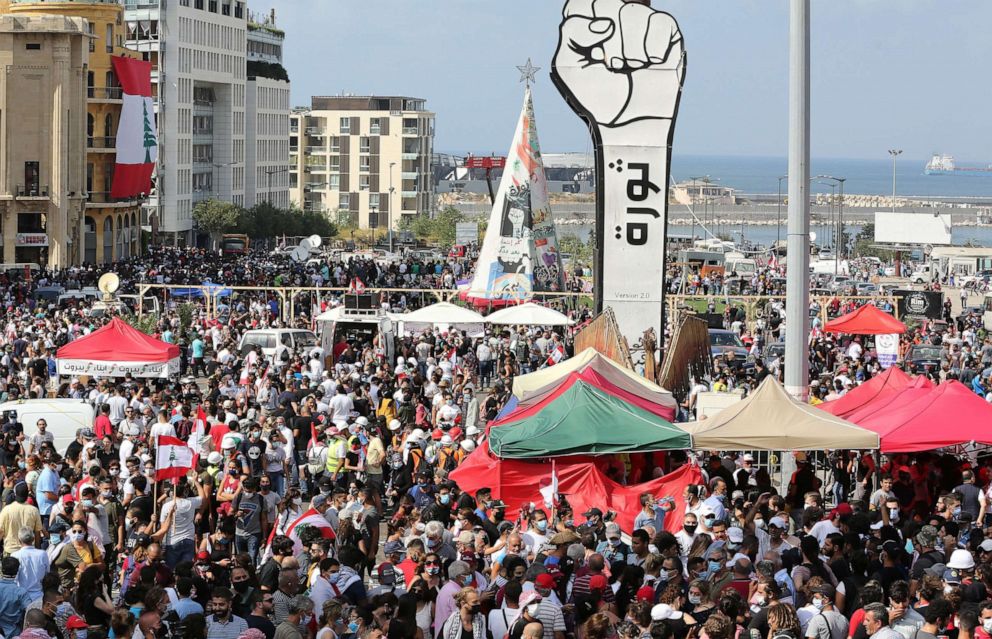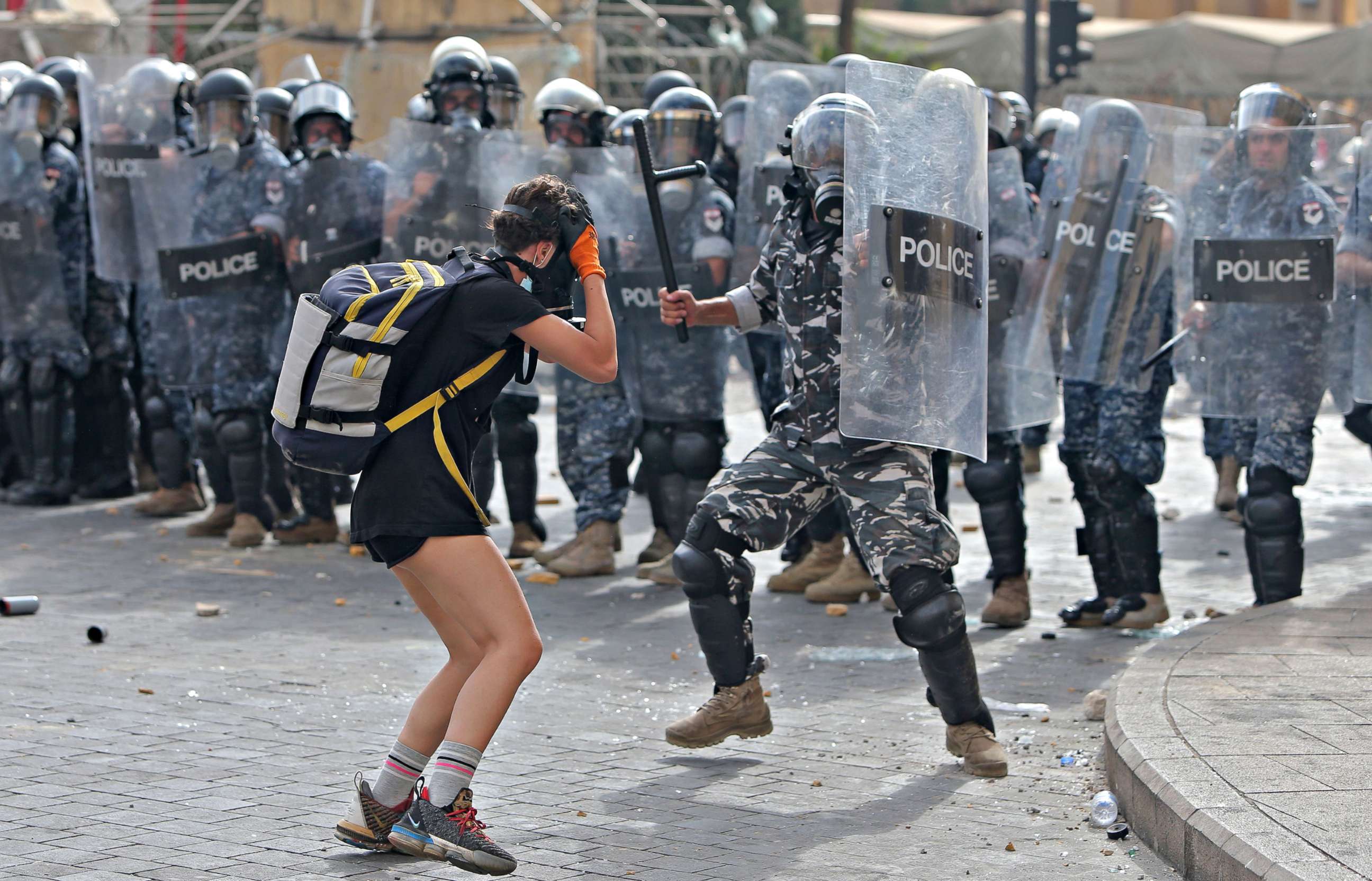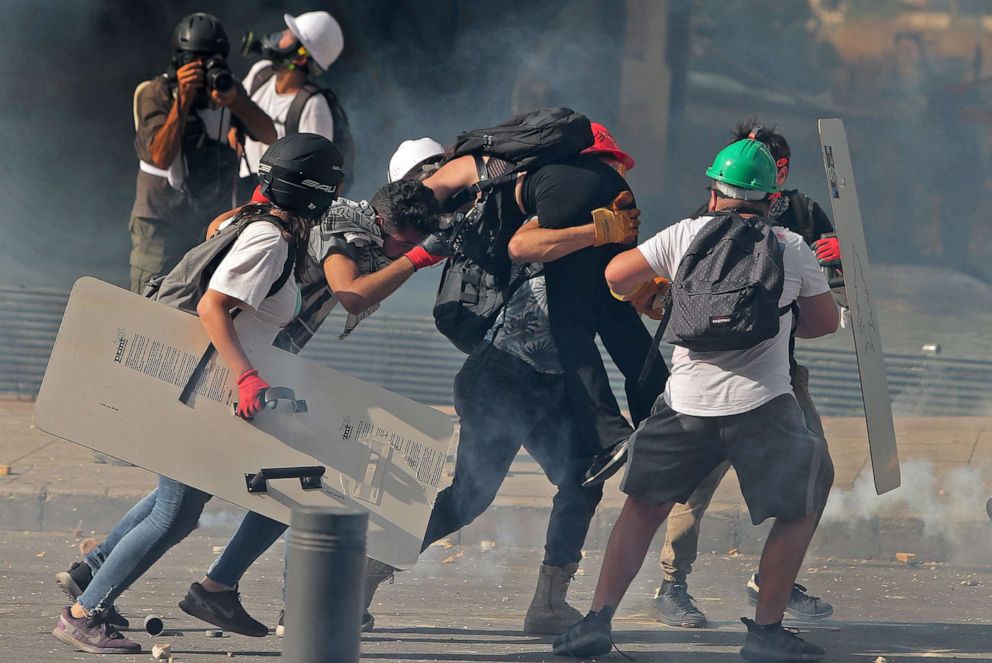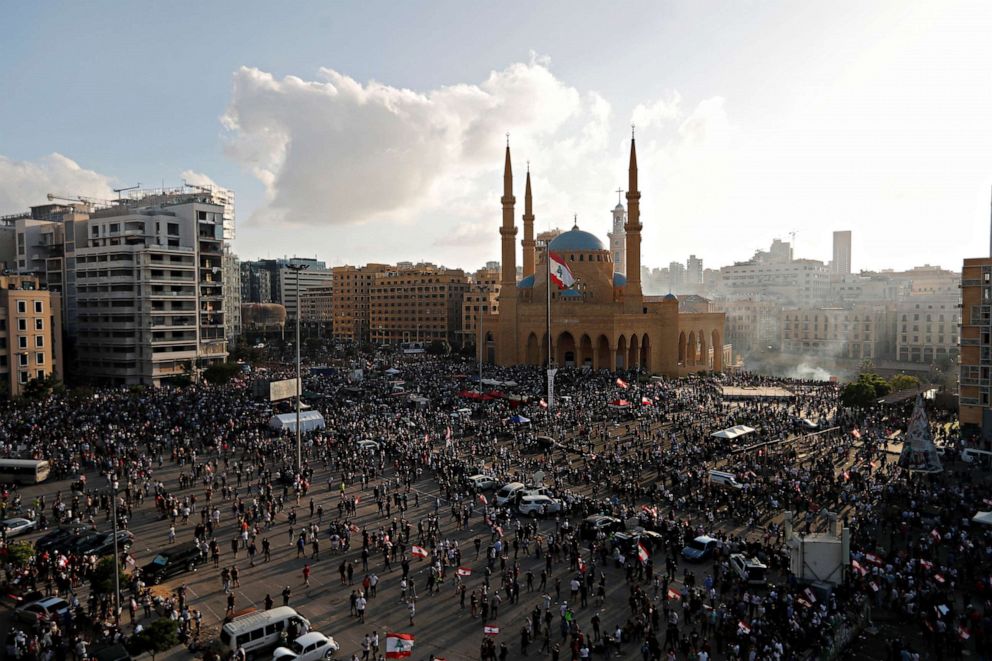Thousands take to the streets in Beirut in wake of hellish explosion
Many are blaming the blast on government ineptitude and corruption.
Clashes broke out between police and demonstrators in Beirut on Saturday, with thousands taking to the streets to protest the government just days after a massive explosion killed at least 158, injured more than 5,000 and devastated large swaths of the city.
Riot police and the parliamentary police used tear gas against protesters, some of whom tried to break through a barrier to reach parliament. Local media also accused the police of using live ammunition in some instances.
At least 55 people had been transported to nearby hospitals and another 117 were being treated at the scene, according to the Lebanese Red Cross.
The protest began with a march through the city before demonstrators poured into Beirut's main square, where they had set up symbolic nooses to hang politicians whom they blamed for the explosion through their corruption and negligence, according to The Associated Press. Photos showed the large crowd gathered around a fist-shaped banner that read "Revolution."

The exact cause of the blast remains unknown, but authorities said that more than 2,700 tons of ammonium nitrate, an industrial compound, was being stored in the warehouse that was the scene of the blast. It had been confiscated in 2013 and remained in the warehouse until the blast.
Corruption has long been viewed a principal reason for Lebanon's recent woes, which including becoming the first the country in the Middle East to enter hyperinflation. Mismanagement by the current leadership and Hezbollah, an Iranian-backed group that forms part of the Lebanese government, has long been a source of frustration, according to Roy Badaro, a Lebanese economist.


Health services in the country, with a population of 6 million, including 1.5 million Syrian refugees, already were stretched thin by the coronavirus pandemic.
Sixty people remain missing from the blast, according to Lebanon's health minister.
France, the U.A.E. and the United States are among the nations providing aid to Lebanon in the aftermath of the blast.

French President Emmanuel Macron arrived in Beirut on Thursday and promised "unconditional aid and support for the population," including a French plane expected to arrive with investigative resources and search teams.
On Saturday, Elysée announced that the United Nations and France would organize an international conference of assistance and support for Lebanon.
"This conference will aim to mobilize Lebanon's main international partners and organize and coordinate emergency support from the international community," according to the statement, which explicitly noted immediate needs in terms of medical, food, education and housing rehabilitation.
A plane donated by the U.A.E. carrying 20 tons of World Health Organization supplies arrived from Dubai on Wednesday night, which will help cover thousands of trauma and surgical interventions, the WHO said.
The U.S. is providing "immediate humanitarian assistance" to the Lebanese government, a spokesperson for the U.S. Agency for International Development said. One American was confirmed to have died in the blast.
ABC News' Rashid Haddou contributed to this report.




